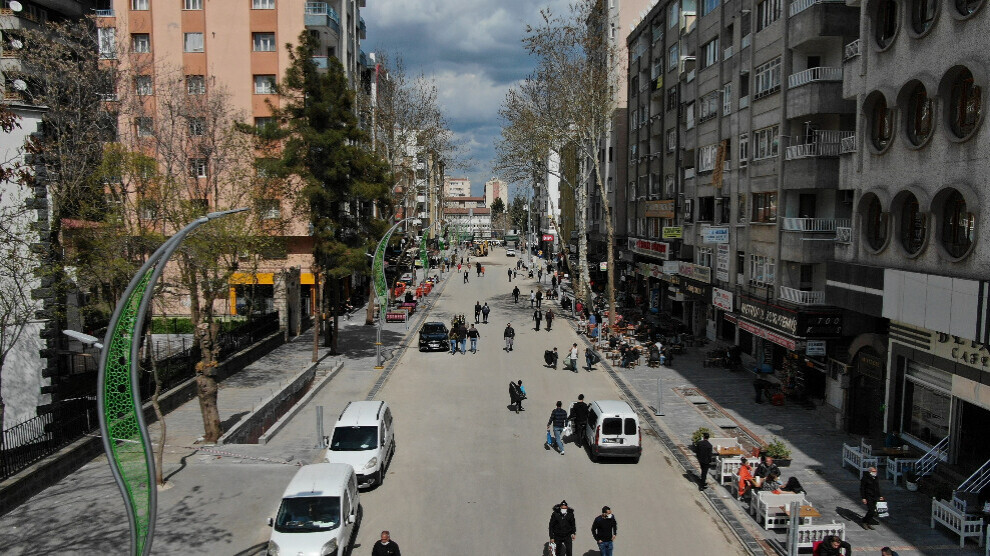How women are driven into prostitution in Amed
B.Y. worked as a waitress in a bar in Amed and tells how women in the restaurant industry are exploited and driven into prostitution. The danger for women is great, she warns.
B.Y. worked as a waitress in a bar in Amed and tells how women in the restaurant industry are exploited and driven into prostitution. The danger for women is great, she warns.

B.Y., a young Kurdish woman from Amed (tr. Diyarbakir), told ANF how women are exploited as waitresses in cafés and bars and driven into prostitution because of the prevailing unemployment and financial problems. It is her own story and she has found a way out. Many other women in Amed have not managed to do so.
"The education system and unemployment present many young people with the alternative of either taking their own lives or working in a bar as a last hope. For the all-day work in the bars and cafés, there is a wage of 2000 to 3000 TL, which is not even enough for electricity and water. I agreed to work for an even lower wage. To avoid being fired, I constantly worked overtime. I knew that it would take a lot of time to find a new job. Therefore, I worked with all my might and at the expense of my health and myself. At work you are always confronted with nasty looks or words and with coercion, from the boss and the customers. Over time, this becomes a habit, you feel it is normal. When someone comes and is nice to you, you think they love you. But this changes after a few days. The man changes his behaviour and suddenly determines when you see each other and what you have to do. Because you don't want others to know, you distance yourself first from your family and then from your circle of friends. And then you suddenly find yourself in the swamp of prostitution. I got out again, but there are many women who don't manage to do that," reports B.Y.
Meeting places for pimps
The bars are meeting places for pimps, B.Y. continues: "On the first days of work, you think they are just normal customers. As time goes by, their behaviour and conversations make you realise that it's about something else. You see that they negotiate about prostitutes in the bar, and when they can't agree, it comes to an argument. Under the influence of alcohol, there are sometimes very violent arguments. In such moments you are afraid, you fear for your life. In the bars, not only are women driven into prostitution, they are also the meeting places of the gangs. The men bring women to the bar, they drink for hours and reach an agreement, then the women leave with the men. The bar owners don't care because they consider everyone a customer and don't want to lose them."
The police cooperate with the pimps
B.Y. says that many bar-goers are army personnel and policemen: "The policemen and soldiers stationed here go to the bars every night. They know what is going on there, but they overlook it. Often it is these men who verbally and physically harass the waitresses." In the central district of Ofis there are many "houses", reports B.Y., referring to flats used for prostitution: "There are always policemen in front of a house I know. When the people from the neighbourhood and the business people complain, the police are forced to go to these houses, but they don't do anything. They themselves are part of the pimp gangs."
Lastly, B.Y. names Cafés and bars where women are driven into prostitution and procured to clients: "There are very many of them. I know of Tren, Hayal Kahvesi, Babel Teras, Maşiri, Curcuna and Penguen. The danger for women is great."